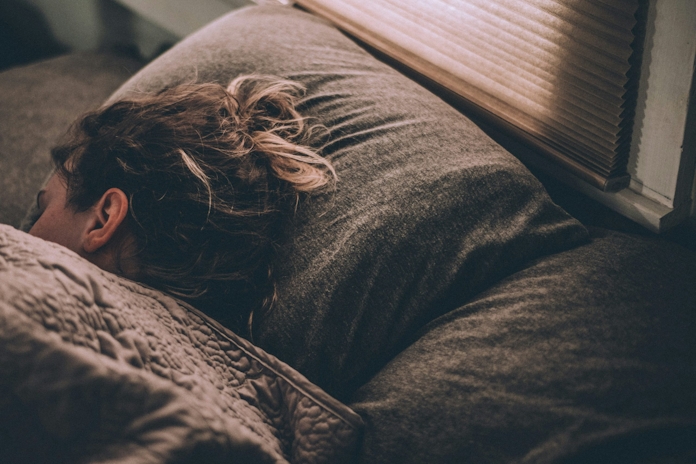
Greg Pappas / Pexels
What Happens When You Sleep High? Smoking Weed Before Bed Explained
Smoking before bed might help you sleep, but is smoking weed before bed bad for you?
The use of cannabis for sleep is making waves in and outside of legal states.
Why, you ask?
Because trouble sleeping is one of the most common afflictions of our modern age.
In fact, according to the American Sleep Association, 50 to 70 million Americans suffer from a sleep disorder. What’s more, about 10 percent of adults in the U.S. have chronic insomnia.
Let’s take a look at this guide we made in collaboration with PLUS, on how can using weed before bed help. Be sure to check out their new line of dual action sleep gummies, the ultimate cannabis-powered sleep aid on the market.
Smoking Weed Before Sleep: Does It Actually Help?

Megan Forbes / Pexels
Turning to cannabis before bed has become a common way for many to wind down the day, thanks to its various potential benefits.
For starters, cannabis may help you fall asleep faster and keep you asleep, enhancing your overall sleep quality, at least in the short term.
Some users find that cannabis slightly increases their slow wave sleep—the deep, restorative kind of sleep. Its relaxing and anxiety-reducing effects are also a major plus, making it easier to slip into a peaceful night’s sleep after a stress-filled day.
Type of Strain Matters
The weed strain you’re consuming before bed will likely impact whether or not cannabis actually helps you fall or stay asleep.
Indica strains are usually the go-to for their relaxing, sedating effects, which can help calm the mind and body, making it easier to fall asleep. On the other hand, sativa strains tend to be more energizing, which might keep you up if you’re smoking up before bed.
Hybrids can vary greatly depending on their dominant traits, so it’s important to know whether it leans more towards indica or sativa.
For the best sleep results, opting for a strain known for its sedative properties—often found in indicas and indica-dominant hybrids—is usually your best bet.
Is It Bad To Smoke Weed Before Bed?

Clear Cannabis / Unsplash
Using weed as a sleep aid isn’t without its downsides.
Over the long haul, regular use might actually contribute to sleep problems and dependency.
One notable drawback is its disruption of REM sleep, a crucial phase of sleep needed for cognitive and immune functioning.
The morning after can sometimes start with grogginess and a lack of alertness, especially at higher THC doses, which might increase anxiety or paranoia in some users.
Tolerance can also quickly increase if you’re consistently using cannabis before bed. You may find yourself needing more cannabis to get the effects you once experienced with a smaller dose.
And, if you suddenly stop using weed before hitting the sac, you may exacerbate insomnia due to withdrawal symptoms.
Weed And REM Sleep

Rachel Claire / Pexels
Ever wonder why you don’t dream as much when you smoke weed before bed?
Well, that’s because cannabis has been shown to reduce REM, or rapid eye movement, sleep according to a 2008 study.
Because dreams occur in REM sleep, those who smoke weed before bed regularly are likely dreaming less because they’re spending less time in REM sleep.
However, sleep expert at the Henry Ford Health Center Dr. Timothy Roehrs told The Cut that claiming cannabis reduces REM sleep may be premature.
“The literature on whether or not marijuana affects REM sleep is extremely weak and equivocal,” he tells The Cut. “Some studies have shown it suppresses REM sleep, some studies have shown it doesn’t.”
What’s more, sleep experts aren’t even positive of the role in REM sleep in regards to health. While there are many theories, the main one being that REM sleep helps people to organize thoughts and activities of the day and to help plan for the future, nothing’s been proven definitively.
Meaning, even if cannabis does lower REM sleep, it might not even be detrimental.
There’s one more way weed and dreams are related. If you consume cannabis regularly, you probably don’t remember many of your dreams when you wake up.
But if you consume regularly and then stop cold turkey, have you ever noticed how your dreams seem to go crazy? Well, that also has to do with the effect on your REM sleep.
Some experts attribute these weird dreams to the REM “rebound effect.” Sleep expert and neurologist, Dr. Hans Hamburger told Vice, “If you’ve been taking a drug that suppresses a certain phenomenon for a while, then that phenomenon will come back stronger when you stop using that drug.”
Basically, because your REM cycle is allowed to return thanks to your cannabis cessation, it overcompensates and comes back in full force at first.
Herb Recommended Products:
READ MORE












